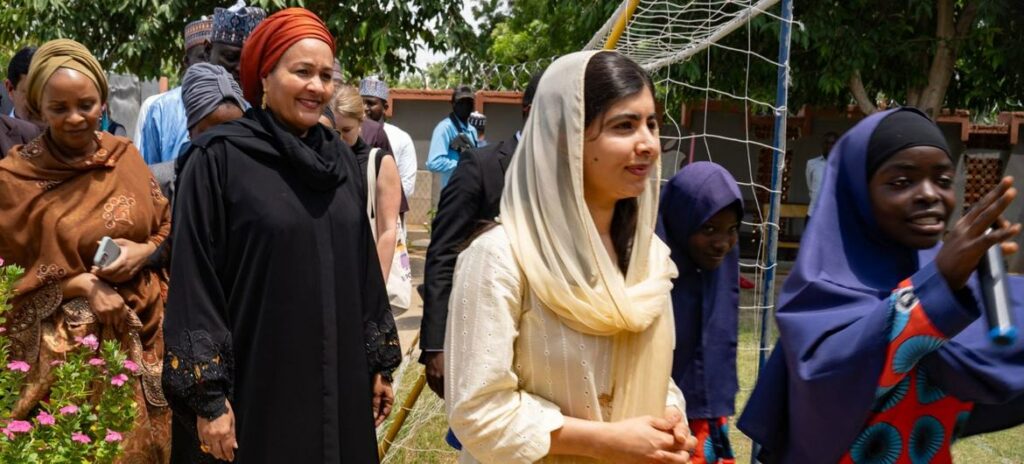More than 120 million girls are out of school and the world must do more to ensure they can get an education, Nobel laureate and UN Messenger of Peace Malala Yousafzai said in Abuja, Nigeria on Wednesday, her 26th birthday.
Read More: Dreams Talks – Connecting Cameroonian and African Ecosystems
UN Deputy Secretary-General Amina Mohammed introduced Malala, saying she has transcended borders, cultures and generations, while her message and passion have touched people everywhere.
Focus on girls’ education
In the years since her UN speech, Malala has completed high school and university, travelled to more than 30 countries, and established an eponymous fund working to reduce barriers to girls’ education.
During that time, Malala also spent her birthday travelling to different countries to meet with local girls, including refugees in Jordan, Iraq, Kenya and Rwanda, and indigenous girls in Brazil.
She has made three trips to Nigeria alone, meeting with activists and young women, and also with parents whose daughters were among the 276 girls abducted in the Chibok school kidnapping in 2014.
Cheers and challenges
Malala shared the stories of some of the young women she has met over the years who have gone on to earn university degrees and even start working.
“We should celebrate the girl who goes to university, takes a job, chooses when and if she marries. But we should not deceive ourselves into thinking that we have made enough progress,” she warned.
“I want to cheer for those who have made it, despite the challenges they faced. But my heart aches for those who we failed. Every young woman like me has friends we saw being left behind – those whose governments, communities and families held them back.”
Little has changed
She praised global initiatives to boost education and gender equality, which will help to achieve the Sustainable Development Goal (SDG) of quality education for all by 2030. Yet she again stressed that “this handful of victories can’t hide how little has changed for hundreds of millions of girls”, including due to the fallout from the COVID-19 pandemic.
Read More: FULLY FUNDED: Apply for this three-weeks Climate Tech Innovators and Leaders Program 2023
Malala also highlighted the situation in Afghanistan following the Taliban’s return to power two years ago. Previously, one in three women there were enrolled in university, she said, but today it is the only country in the world where women and girls are banned from pursuing an education.
Be the change
In her powerful speech at the UN in 2013, the 16-year-old Malala famously declared that “one child, one teacher, one pen and one book can change the world.” Her youthful optimism has since been tempered.
Invest in girls
Malala called for joining forces to build a world where all children have access to 12 years of quality education, while leaders must be held accountable for their commitments to gender equality and education.
She also underlined the importance of communities. “I believe that so many of the problems girls face would be solved if we could break the stranglehold of patriarchy, the misogyny, we disguise as cultural tradition or religion,” she said.
Malala revealed that when she was 16, she could not have imaged what the decade ahead would hold, although she was hopeful.
Read More: The Power of Multilingual Education and Technology in Africa
School visits
As part of her visit, on Tuesday, the Deputy Secretary-General travelled to Maiduguri, the capital of Borno State, with Malala and her father, Ziauddin Yousafzai who is a co-founder of the Malala Fund.
The delegation visited three schools all of which focus on providing quality education to girls, many of whom have been impacted by violence. Ms. Mohammed is headed next to the Belgian capital Brussels, where she will join the Secretary-General in UN-European Union meetings.
